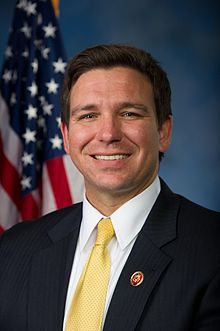By Clint Thompson
Decision day looms for Florida Governor Ron DeSantis. He must decide by Thursday, April 29 to sign a bill that would expand the state’s “Right to Farm” law.

The Senate passed the bill in March. The House voted 110-7 with overwhelming support last week. Now, it’s up to the governor.
“We are hopeful. We have submitted, literally, over 1,000 letters of support for this bill to him,” said Adam Basford, Director of State Legislative Affairs at Florida Farm Bureau. “We’ve submitted letters from basically every agricultural organization in the state as well as broad support from the communities that seem to be targeted around the Lake Okeechobee. There’s broad support. It was a bi-partisan bill. Only seven no votes in the House and one no vote in the Senate.
“We’re hopeful but obviously there’s criticism that’s facing the bill.”
Opposition
It was just three weeks ago that one Florida legislator deemed House Bill 1601 a “dangerous piece of legislation”. Florida State Representatives Anna Eskamani and Omari Hardy believe the bill’s timing wreaks of Big Sugar’s influence.
Big Sugar encompasses Florida Crystals Corporation, U.S. Sugar and Sugar Cane Growers Cooperative of Florida. It is already involved in a lawsuit which cites sugarcane burning as having harmful effects on health and pollutes the environment.
If it is signed into law, House 1601 would modify Florida’s Right to Farm Act to broadly protect farmers from lawsuits if they’ve followed regulatory requirements. Both Representatives believe the legislation would have dangerous ramifications if it passes. Basford sees it differently.
“It’s the same objections we’ve heard the entire time about the bill. Really, people look at it and think on the surface it gives farmers the right to pollute and the right to do things that might hurt their neighbors. But it’s just the opposite. Make sure that farmers who are following guidelines and following all the rules and regulations, they’re the ones that don’t have to worry about frivolous lawsuits,” Basford said. “If farmers are operating outside of the guidelines and that creates a nuisance for that community, then by all means, they should be open for litigation.”









